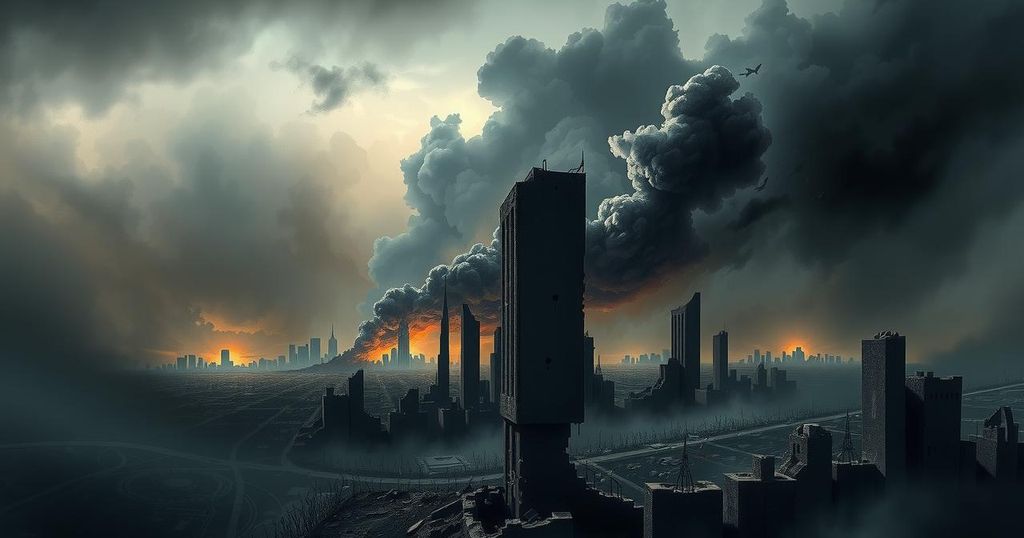Europe’s Leaders Blind to Growing Autocratic Alliance Threat

A recent event in Moscow, commemorating the end of WWII, highlighted the alarming alliance between autocratic leaders, including Putin, Xi Jinping, and Kim Jong Un. This coalition, labeled the ‘Crinks’, poses a significant threat to democracies, particularly revealed through military cooperation in Ukraine. European leaders seem oblivious to the urgency of rearming and reforming defense strategies to counter this rising threat, raising concerns about security and American commitment to NATO.
In a stark reminder of the geopolitical realities facing Europe today, a gathering of autocrats took place in Moscow, coinciding with the 80th anniversary of the end of World War II in Europe. Russian President Vladimir Putin shared the stage with an array of global autocrats, emphasizing a concerning alliance that includes leaders from China, Iran, North Korea, and others. Ironically, this commemoration was supposed to celebrate freedom over tyranny.
The ceremony, held in Red Square, featured a display of military strength—a show of force underscored by the presence of Chinese troops and Iranian drones. While North Korean leader Kim Jong Un did not attend, he sent a symbolic message through a visit to the Russian embassy in Pyongyang, reinforcing the deepening ties between Russia and North Korea. This event illustrated not only the confidence of these regimes but also a troubling geopolitical landscape that European leaders seem to overlook.
The theme of the London Defence Conference coinciding with the Moscow event highlighted an emerging alliance of these autocrats—among them China, Russia, Iran, and North Korea, collectively termed the ‘Crinks’. This coalition poses a dire challenge to democracies worldwide, particularly as these regimes grow stronger while the Western response appears fragmented. A critical examination reveals the operational support these nations provide to each other, especially evident in the ongoing conflict in Ukraine.
Iran has reportedly supplied Russia with hundreds of drones used in attacks across Ukraine, significantly bolstering the Russian military. Additionally, North Korea has emerged as a crucial supplier of military equipment sending vast numbers of artillery shells and missiles, while also deploying its troops to assist Russian forces. Such military cooperation raises alarm bells, suggesting a coordinated effort that threatens European security.
China, though currently refraining from supplying lethal aid, has become a key player in rebuilding Russia’s military. More than 70% of the machinery and nearly all of the microchips supporting the Russian defense industry come from Chinese sources. Furthermore, China accommodates Russia’s energy needs by purchasing copious amounts of oil and gas, with these transactions proving beneficial for both regimes, highlighting their intertwined fates.
As Russia maintains an aggressive military rebuild—aiming to produce 1,500 tanks, 3,000 armored vehicles, and 250,000 shells monthly—there is a pressing need for Europe to reassess its defense strategies. Concerns are mounting regarding Europe’s collective security, especially in light of doubts surrounding American commitment to European allies.
European leaders seem entrenched in complacency. Some, like French President Emmanuel Macron, lack the decisiveness needed for a rigorous rearmament strategy. Meanwhile, Germany’s leadership under Chancellor Friedrich Merz is still finding its footing following a chaotic transition. Relatively few leaders in Poland, the Baltics, and Scandinavia express the urgency required to meet the growing threats.
In this context, Britain, as Europe’s principal military force, holds a crucial responsibility. There’s a pressing need for the UK and its allies to forge a new military coalition, uniting major European powers along with Canada and Norway to create a robust defense posture. However, to truly lead, the UK must commit seriously to defense spending, moving beyond political rhetoric toward tangible contributions that signal resolve against the burgeoning autocratic threat.
The rising alliance of autocratic regimes poses a serious challenge to global democratic norms, particularly as Europe stands at a crossroads regarding its defense strategy. With leaders increasingly disengaged from the realities of a united front against these threats, it is crucial that Europe reassesses its commitments, reinvigorates military spending, and considers restructuring NATO to ensure robust security. The urgency to reform and strengthen alliances cannot be overstated, given the potential ramifications of complacency amidst a rapidly changing geopolitical landscape.
Original Source: www.dailymail.co.uk







